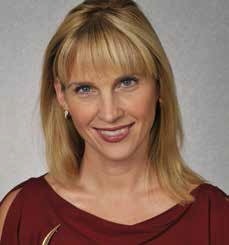by
Lisa Chamoff, Contributing Reporter | October 13, 2015
From the October 2015 issue of HealthCare Business News magazine
Radiologists achieved a long-awaited victory at the beginning of 2015 when the Centers for Medicare and Medicaid Services (CMS) announced that it would reimburse annual low-dose CT lung cancer screening for longtime smokers between the ages of 55 and 77. But, as with any slice of success in health care, there are still a number of challenges facing the CT market.
While the organizers of currently up-and-running and new lung screening programs create protocols to meet the stringent CMS requirements for reimbursement, hospitals have also been working to make sure CT scanners meet the Medical Imaging & Technology Alliance’s (MITA) Smart Dose Standard, to avoid Medicare cuts beginning next year. At the same time, new Joint Commission standards that took effect July 1 put even more emphasis on making sure the radiation dose from CT scans is as low as possible.
The CMS made a “landmark decision” in reimbursing low-dose CT lung screening, says
Dr. Andrea McKee, a radiation oncologist who runs the CT lung cancer screening program at Lahey Hospital & Medical Center in Burlington, Mass.



Ad Statistics
Times Displayed: 173323
Times Visited: 3161 For those who need to move fast and expand clinical capabilities -- and would love new equipment -- the uCT 550 Advance offers a new fully configured 80-slice CT in up to 2 weeks with routine maintenance and parts and Software Upgrades for Life™ included.
“It’s really going to dramatically change the way we manage lung cancer, and we’re all very excited about it,” McKee says. In order to qualify for CMS reimbursement for a scan, patients with no signs or symptoms of lung cancer must be current smokers or must have quit smoking within the past 15 years, with a smoking history of at least 30 pack-years, an average of one pack a day for 30 years. Patients must then receive a written order for screening during a visit with a physician, physician assistant, nurse practitioner or clinical nurse specialist who reviews and discusses the benefits and harms of screening, including the possibility of a false positive and the exposure to radiation, and provides counseling on smoking cessation.
Providers must also utilize a standardized lung nodule identification, classification and reporting system, such as the American College of Radiology (ACR) Lung Imaging Reporting and Data System (Lung-RADS), and collect and submit data on each scan to a CMS-approved registry. While the requirements for CMS reimbursement may seem onerous, they ensure the quality and safety of screening programs, says
Dr. Ella Kazerooni, who chairs the ACR’s Lung Cancer Screening Committee.

